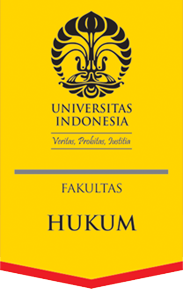Article Title
PERTIMBANGAN HUKUM DALAM PERKARA BANTAHAN (DERDEN VERZET) ATAS SENGKETA TANAH MENURUT SURAT EDARAN MARI NOMER 3 TAHUN 2018
Abstract
Derdenverzet is an extraordinary legal effort to fight a judge's decision that is detrimental to him/her. Third-party resistance is regulated in Article 195 paragraphs (6) and (7) HIR, or Article 206 paragraph (6) RBG. Article 195 paragraph (6) HIR, among other things, regulates opposition to executorial confiscation submitted by those affected by the execution or confiscation, namely by a third party based on ownership rights to the goods confiscated. Third-party opposition to executorial confiscation can only be carried out after a decision has permanent legal force (inkracht van gewisjde). This is because third-party resistance (derdenverzet) is an extraordinary legal remedy. In principle, resistance submitted by a third party to an executorial confiscation does not suspend the execution. Third-party opposition to the decree of confiscation of execution is filed by a person or party who is not a party to the case in question. In this case, the third party must be able to prove that he is the owner of the confiscated object. This means that only the owner or person who feels he is the owner of the confiscated goods has the right to fight against a third party. Apart from that, the opponent must really have an interest in asking for the confiscation of the execution to be lifted because it has harmed his rights. If the third party can prove that the goods are his and not the defendants, then the contrarian must be declared a true or honest contrarian, and the confiscation order must be lifted. Therefore, third-party resistance to executorial confiscation must be based on property rights. Based on Circular Letter of the Supreme Court of the Republic of Indonesia Number 3 of 2018 concerning the Implementation of the Formulation of the Results of the 2018 Supreme Court Chamber Plenary Meeting as Guidelines for the Implementation of Duties for the Court, it explicitly states that objection cases are prohibited from including ownership in the decision. Thus, the ruling regarding third-party opposition to confiscation of execution only relates to the removal of confiscation of execution on goods belonging to third parties and does not decide on land ownership rights. However, in practice, there are decisions on derdenverzet that rule on the ownership of disputed land rights. This gives rise to legal problems in the implementation of the execution because, in essence, the third party's objection or resistance to the execution decision is only related to the removal of the execution confiscation of the goods belonging to the third party affected by the execution. The decision regarding whether the ownership of land rights is valid or not is decided in the final decision regarding the subject matter of the case, not in the decision regarding opposition to the confiscation of execution, where the claim concerns the removal of the confiscated execution.

